POTS and Heat: How Hot Weather Affects Symptoms + Relief Tips
October 1, 2025
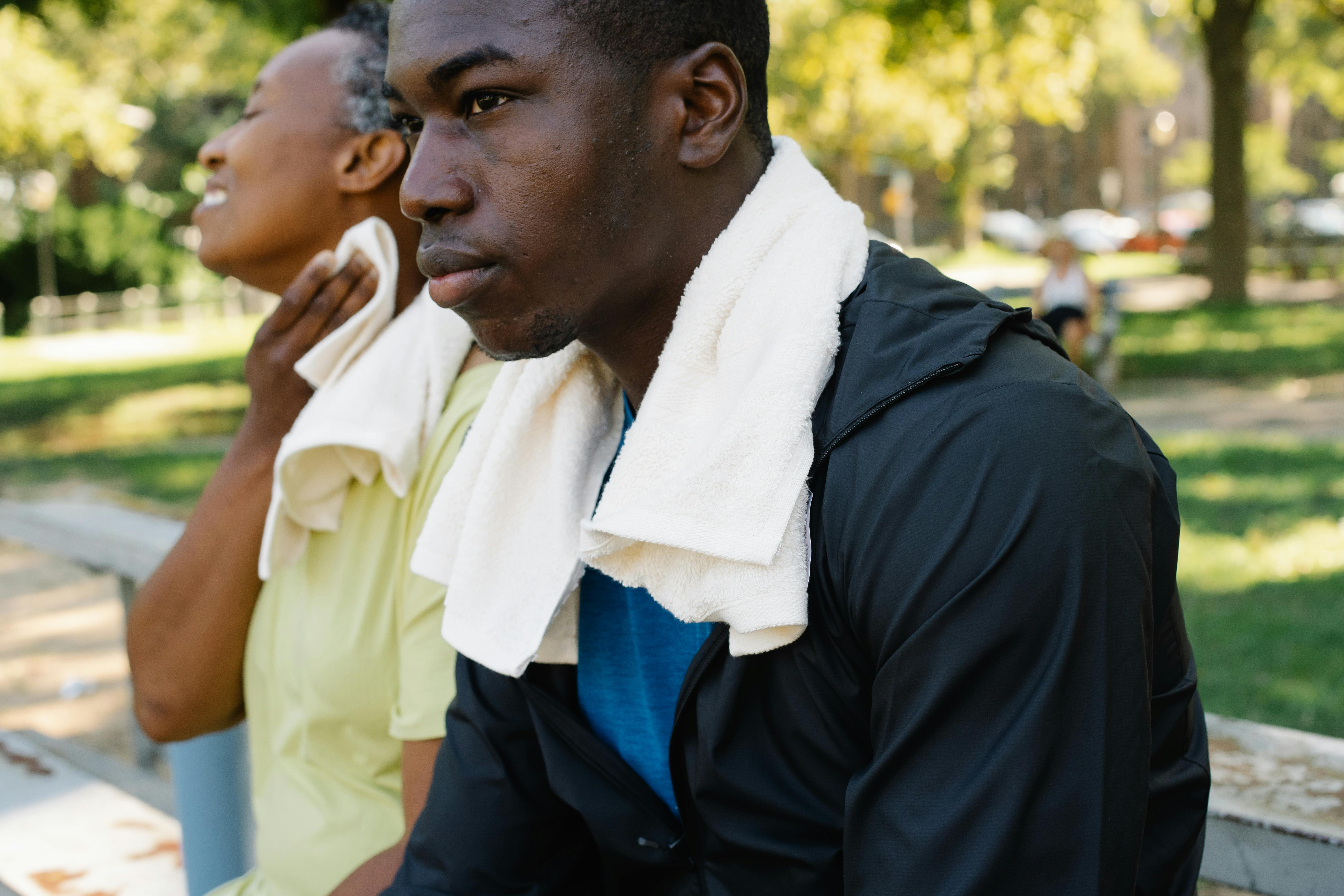
- Heat can intensify POTS symptoms like dizziness, fatigue, and brain fog, because high temperatures increase vasodilation, sweating, and fluid loss.
- Common triggers include dehydration, changes in blood flow, and heat stress, which can make standing or moving more difficult for people with POTS.
- Supportive relief strategies include staying hydrated, replenishing electrolytes, using cooling methods (like cold packs or shaded rest), and pacing activities.
- Tracking symptom flare-ups with the Human Health app helps you notice heat-related patterns, share insights with your healthcare provider, and prepare for hot days.
Disclaimer
This article is for informational purposes only. Human Health is a tracking and support tool. It does not provide medical advice, diagnosis, or treatment. Always talk with a doctor or qualified healthcare provider about your health.
For many people living with postural orthostatic tachycardia syndrome (POTS), hot summer days can feel especially challenging. The combination of rising temperatures, humidity, and dehydration can make symptoms like dizziness, rapid heartbeat, and fatigue more noticeable. In fact, heat often worsens POTS symptoms and can trigger flare-ups for some people.
The good news is that there are safe, supportive ways to get through the heat.
In this article, you’ll learn how high temperatures may affect POTS, the possible reasons behind symptom changes, and practical relief strategies - from hydration and cooling tips to tracking patterns with the Human Health app.
The correlation of heat and POTS
When temperatures rise, many people with POTS find their symptoms get worse or harder to predict. Heat changes how the body controls blood flow and fluid levels, which can lead to dizziness, brain fog, a racing heartbeat, or exhaustion.
Understanding this link is the first step to preparing for hot days and finding ways to protect your body. With supportive strategies and careful tracking, you can spot patterns and reduce the impact of heat on your daily life.
Possible reasons hot weather can make POTS symptoms worse
There isn’t just one reason heat hits harder with POTS; several body processes shift when temperatures climb.
Blood flow and vasodilation
In hot weather, your blood vessels widen (vasodilation) to help cool the body. For people with POTS, this can mean more blood pooling in the lower body and less blood reaching the brain, increasing dizziness and fainting risk.
Sweating and fluid loss
Heat leads to more sweating, which may influence dehydration and electrolyte imbalance. Because hydration is key to maintaining blood volume, research shows that people with POTS often have reduced blood volume, and this deficit is strongly linked to worsened symptoms such as rapid heart rate and fatigue.
Heat stress and heart rate changes
When it’s hot, your body has to work harder to stay cool. One way it does this is by speeding up the heart and sending more blood to the skin to release heat. For people with POTS, this extra strain often pushes symptoms further, causing a racing pulse, dizziness, and deep fatigue.
These changes add up, leaving the body working overtime and making everyday tasks in hot weather more draining for people with POTS.
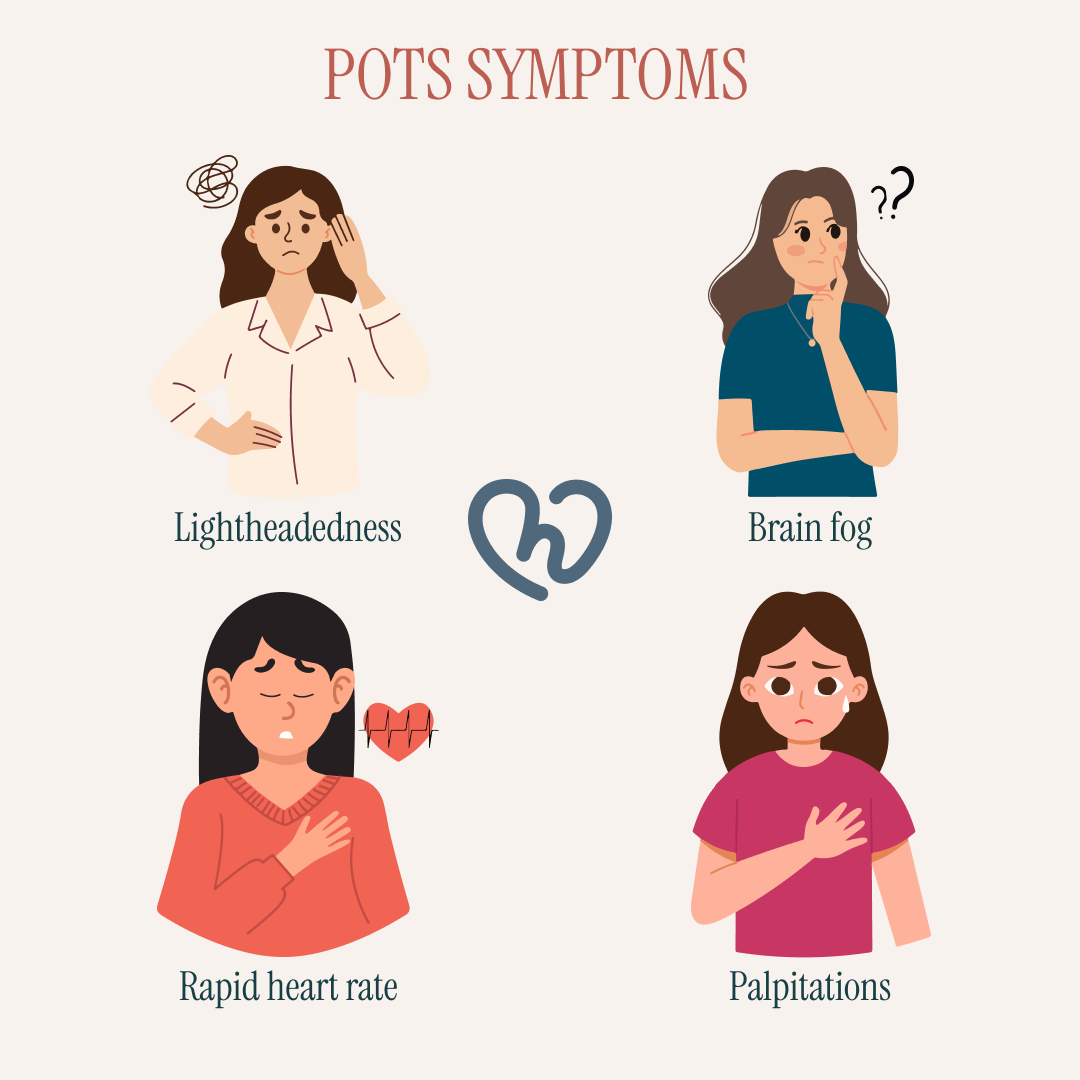
Managing POTS flare-ups in warmer weather
While heat can’t be avoided completely, there are practical steps you can take to make symptoms more manageable.
Stay hydrated
Drinking water regularly throughout the day can help maintain blood volume. Some people with POTS also benefit from increasing electrolytes (particularly sodium), which has been shown to expand plasma volume and reduce excessive heart rate. However, always check with your healthcare provider before making dietary changes or using supplements.
Use cooling strategies
Cold packs, cooling towels, or taking breaks in air-conditioned spaces can ease the strain heat places on your body. Even simple shade or lightweight clothing could make a noticeable difference.
{{inline-cta-1}}
Pace your activities
Try to schedule demanding tasks for cooler parts of the day. Taking breaks, sitting when needed, and moving slowly can prevent POTS flare-ups.
Small adjustments like staying hydrated, cooling down, and pacing activities can make a big difference in how your body handles the heat.
Logging when and where flare-ups happen (such as during outdoor activities or after time in direct sun) also helps you spot heat-related patterns. You can then share these insights with your provider to adapt care and prepare for hot days.
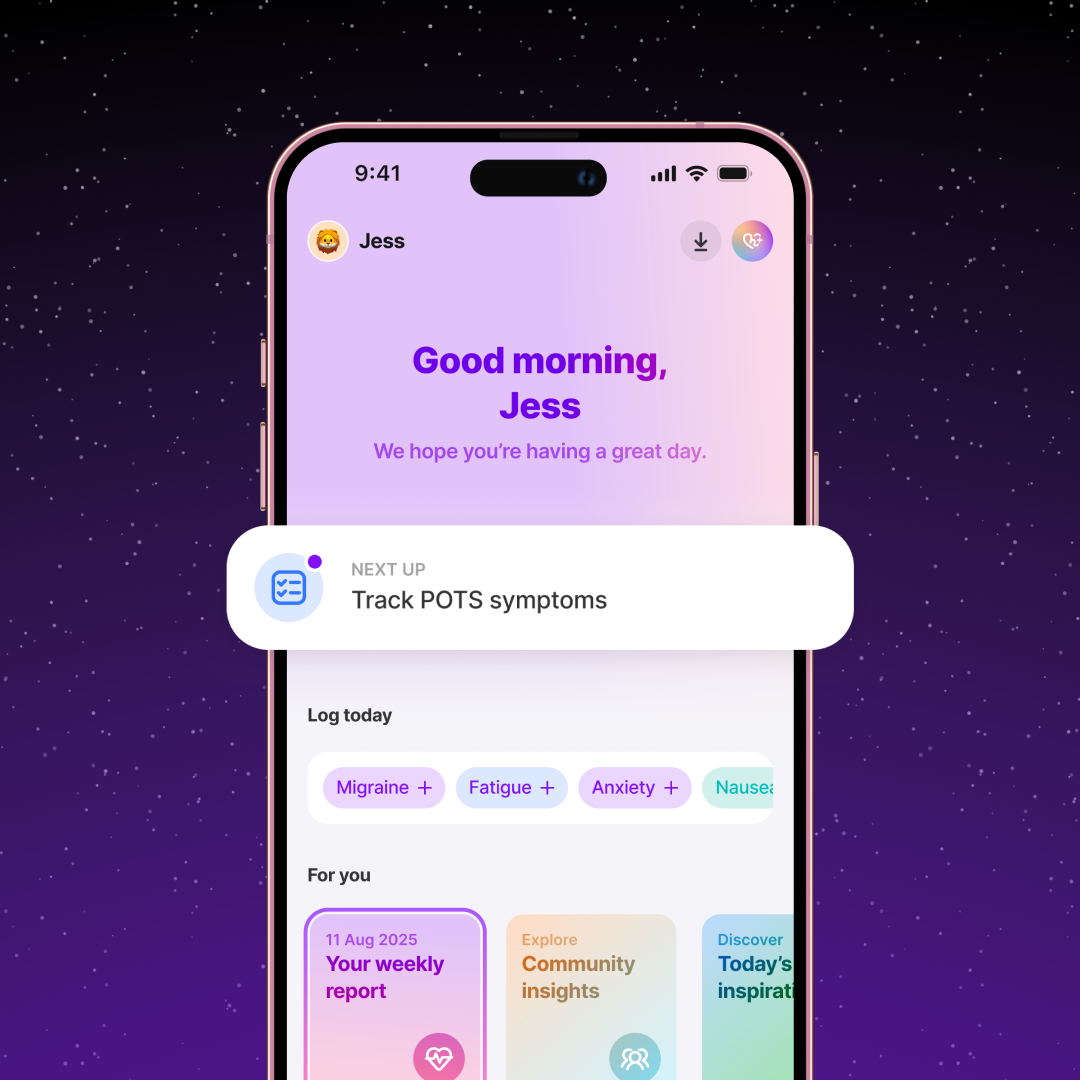
Real-life experiences of people with POTS in hot weather
Many people with POTS say that managing heat is one of their biggest daily challenges. In a community discussion on r/dysautonomia (Reddit, 2021), users shared that high temperatures often trigger dizziness, fatigue, and a racing heartbeat, sometimes within just minutes outdoors.
You can use the Human Health app to track your own symptoms, spot trends, and share details with your care provider.
Adjusting daily routines
Several community members said they stay indoors during the hottest hours and plan errands early in the morning when symptoms are milder. One person wrote that they “stay in the air conditioning and only go outside briefly,” while another described “being a hermit for six months of the year.”
Cooling down more comfortably
Cooling strategies were mentioned repeatedly — from “ice packs, shade, and cool misting sprays” to “wet bandanas and…wet rags.” Others said they use cold water, soak shirts, or even stand under irrigation to stay cool while working.
Relying on hydration and electrolytes
Many participants emphasized staying hydrated, often carrying large bottles of water or using electrolyte drinks. One user wrote, “Drink tons of ICE water. It cools you from the inside out.”
Preventing fainting episodes
Some people describe near-fainting during travel or crowded events in the summer heat. If you’ve had similar experiences, you might feel safer planning rest breaks, staying hydrated, or keeping salty snacks with you. Recording these episodes in Human Health can help you and your provider prepare together.
Everyone’s experience with POTS is different. These shared stories are here to offer understanding and support, not medical advice. If your symptoms feel severe or hard to manage, it’s always best to reach out to your healthcare provider.
When to speak to a professional
It’s important not to normalize severe or worsening symptoms. Contact a healthcare provider if you notice:
- Frequent fainting or near-fainting spells in hot weather
- Rapid or irregular heartbeat that feels hard to manage
- Severe dehydration signs such as dizziness, confusion, or inability to keep fluids down
- Sudden changes in symptom patterns, especially if they don’t improve with hydration or cooling strategies
- Concerns about adding electrolytes or supplements, since these should always be discussed with a professional

Tracking POTS and heat sensitivity symptoms With Human Health
Hot weather can make POTS feel unpredictable and exhausting, but you don’t have to face it unprepared. With Human Health, you can track daily symptoms, hydration, and flare-ups tied to temperature or humidity. Clear PDF summaries give your provider the full picture, and multiple profiles make it easy if you’re also caring for someone else.
By turning scattered experiences into clear patterns, you’ll feel more confident heading into hot days and more supported in conversations with your care team.
Start tracking with Human Health today and take back control from the heat.
FAQs:
Can heat make POTS symptoms more unpredictable?
Yes. Heat increases vasodilation and places added stress on the cardiovascular system, which research shows can reduce blood pressure control and worsen orthostatic tolerance, making POTS symptoms feel more severe in hot conditions.
Does humidity affect POTS symptoms differently than dry heat?
Yes. Many people with POTS experience abnormal sweating patterns, such as reduced or excessive sweating, which makes it harder to regulate body temperature in humid conditions. Because sweat evaporates less effectively when humidity is high, the body can overheat more easily, leading to greater fatigue, dizziness, and rapid heart rate.
How to cool down when you have POTS?
Supportive methods include staying hydrated, using cooling towels or cold packs, resting in air-conditioned spaces, and pacing activity to avoid overheating.
Disclaimer
Human Health is a health tracking platform and does not provide medical advice, diagnosis, or treatment. The information on this site is intended to support, not replace, conversations with qualified healthcare professionals.
Sources
- PoTS UK: Temperature Regulation
- National Library of Medicine: Blood volume deficit in postural orthostatic tachycardia syndrome assessed by semiautomated carbon monoxide rebreathing
- National Library of Medicine: Postural tachycardia syndrome: multiple symptoms, but easily missed
- National Library of Medicine: Effect of High Dietary Sodium Intake in Patients with Postural Tachycardia Syndrome
- National Library of Medicine: Effect of whole body heat stress on peripheral vasoconstriction during leg dependency
- National Library of Medicine: Cutaneous manifestations of orthostatic intolerance syndromes
This is a div block with a Webflow interaction that will be triggered when the heading is in the view.

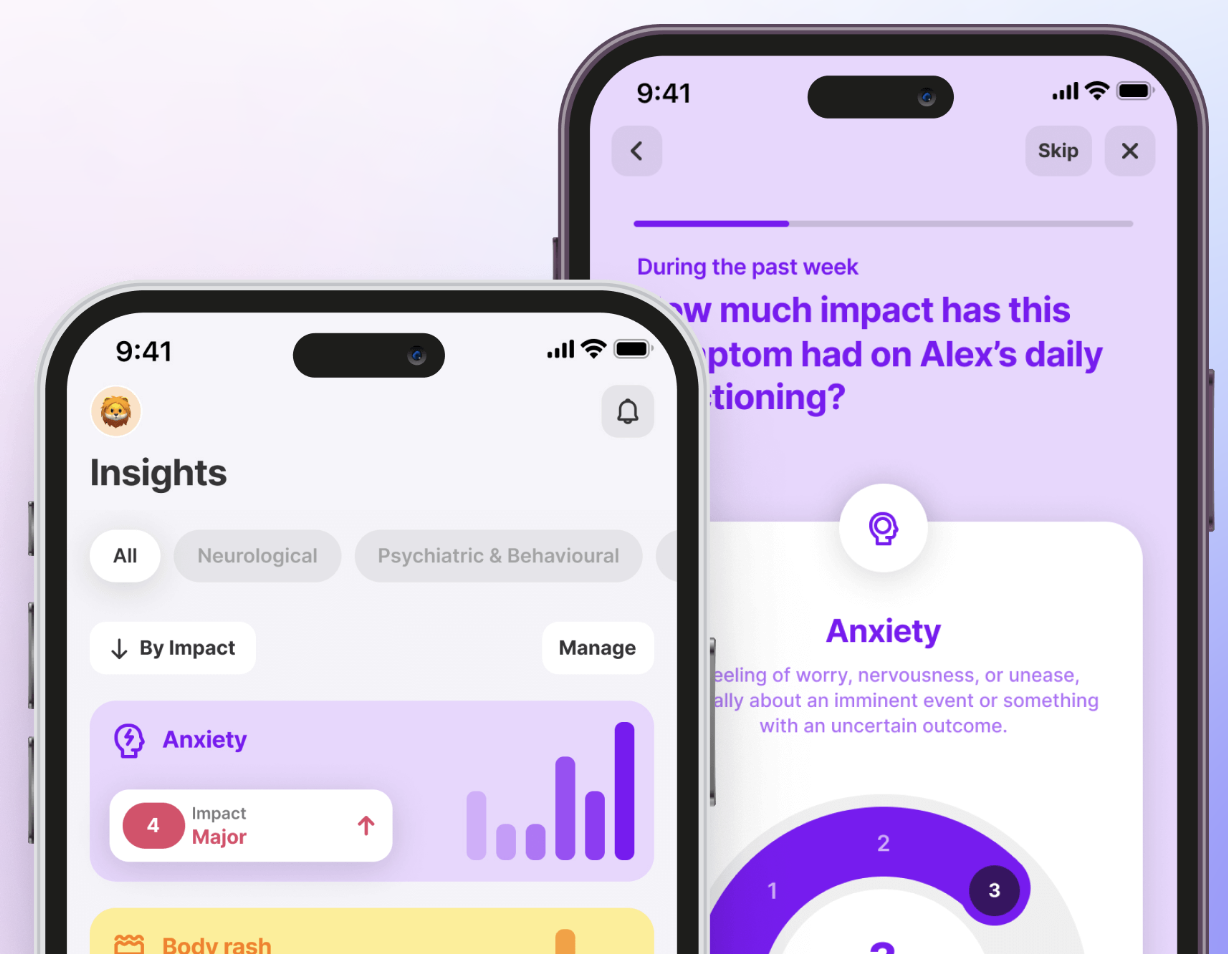
Identify Symptom Changes & Spot Patterns
With the Human Health app, you can identify external and internal triggers that may influence your symptoms to change over time.








.jpg)



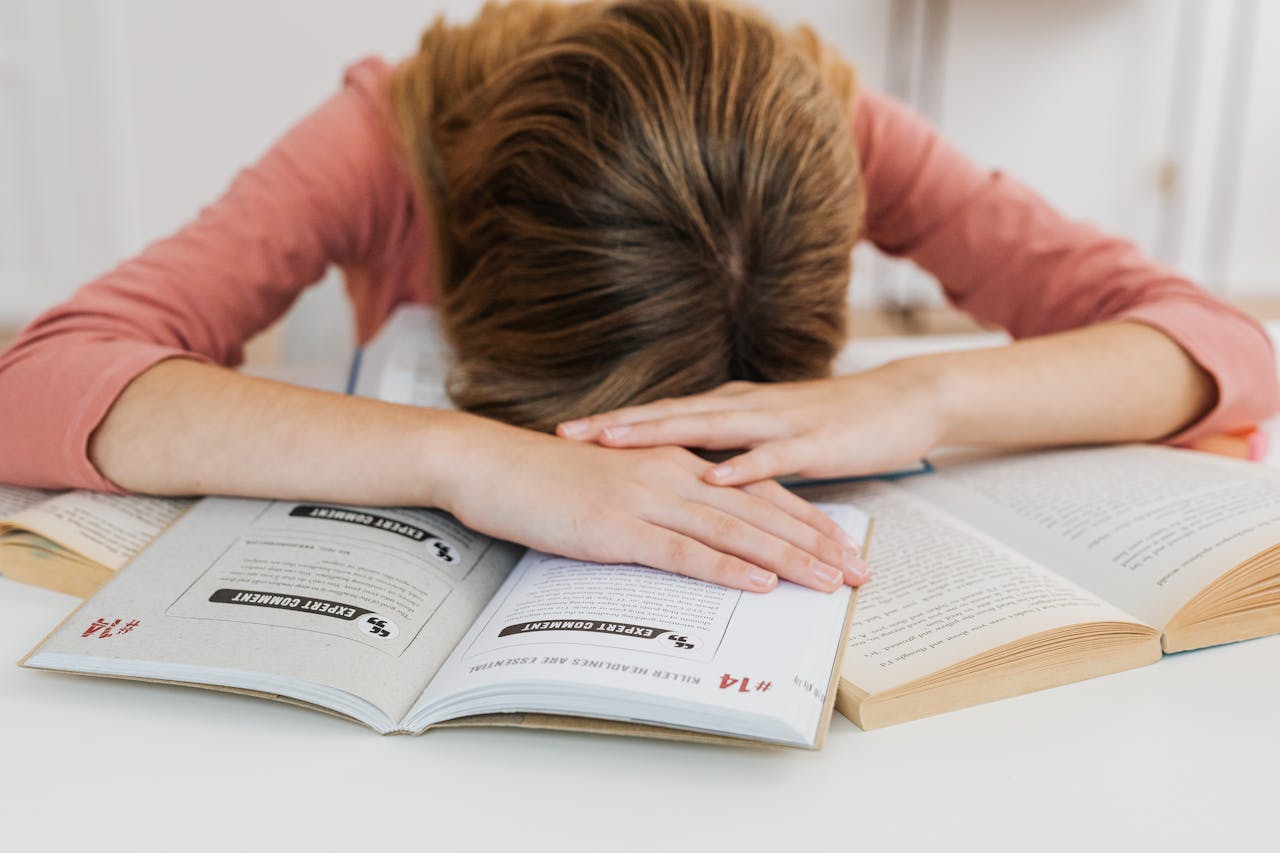
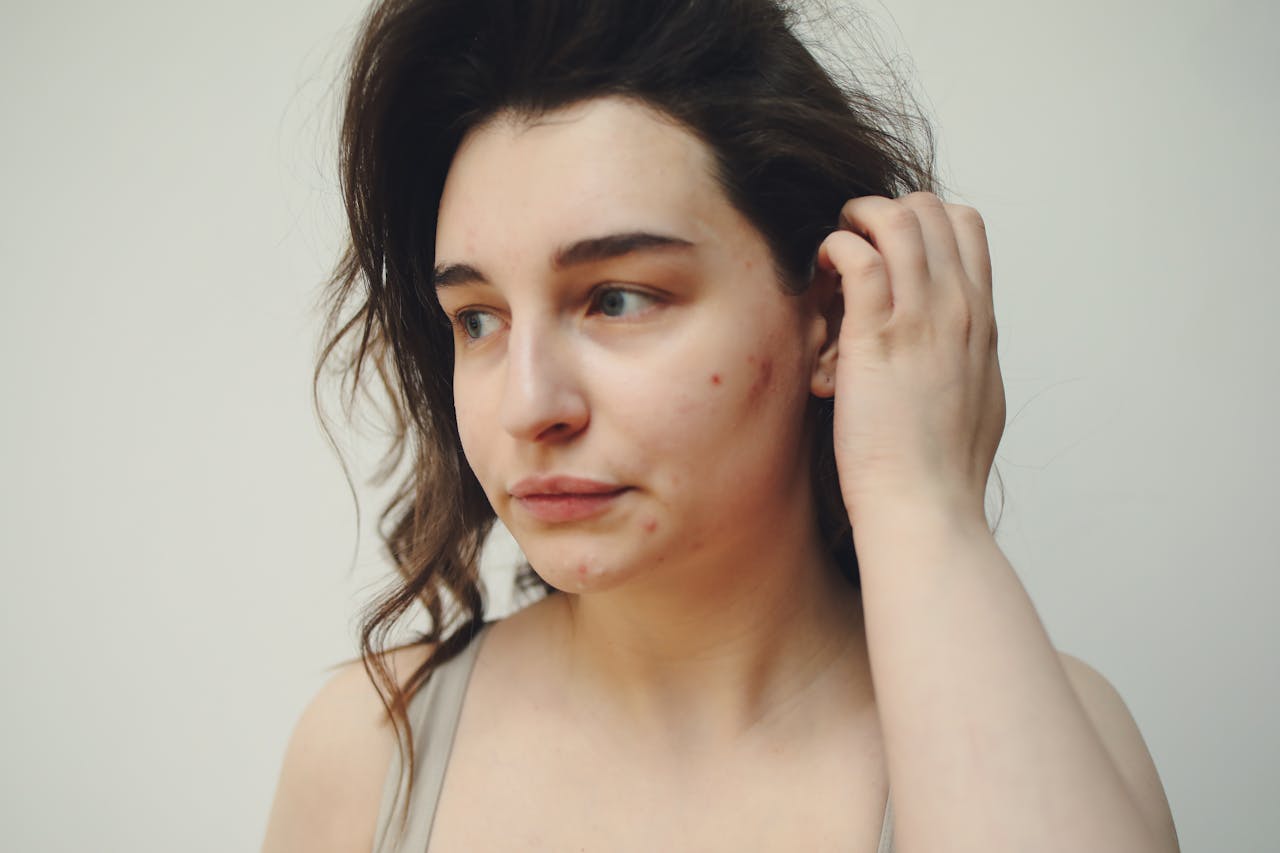
.png)

